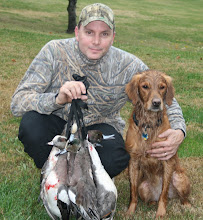
Well, I don’t know whether this simple little blog had anything to do with it, but the California Fish and Game Commission deserves much credit for taking steps this year to simplify the waterfowl regulations. At least a little bit.
***

Knowing that the Fish and Game folks would be setting this years’ waterfowl season and bag limits in early August, a few weeks ago I set out to look up the recommendations coming from the Pacific Flyway Council to the Fish and Game Commission as a preview of what the Commission may likely approve as the regulatory framework for this year. Clear as mud?
As I reviewed the agenda and proposed regulations of the Fish and Game Commission for the August meeting, I was pleasantly surprised to see examples such as the following:
“The existing regulations allow a white-fronted goose daily bag limit of 4 per day… The proposed change would increase the daily bag limit to 6 geese per day… The white-fronted goose population is currently about 600,000 birds and above the population goal of 300,000 birds established in the Flyway Management Plan. The increase in the white-fronted goose daily bag limit is intended to… simplify regulations.
Currently, goose bag limits… allow up to 6 Small Canada geese, 4 Large Canada geese and 4 white-fronted geese. [T]his proposed change would allow a simple regulation of 6 dark geese per day in these two zones.
The existing regulation permits white-fronted goose hunting… to begin on the last Saturday in October whereas the general goose season normally opens on the third Saturday in October. The proposed change would allow hunting of white-fronted geese to begin earlier than the current regulation and would be consistent with the opening date for geese in the Balance of State Zone.”
This was just one of several references to the Commission’s attempts at simplifying regulations. Kudos to the Commission for developing a framework that is both based on the evidence of population levels and simplifies the regs for hunters. We will appreciate these changes in the coming months as we enter the field chasing ducks, geese, or other favorite quarry.


5 comments:
Any suggestion I would like to believe are taken under consideration I hope, it would be wise for some of these departments to listen to those who spend time in the outdoors.
I completely agree that regs, in general, are way too confusing. I hope that North Carolina will streamline the regs to make them more user friendly.
By the way, it is good to see you posting again.
Doug
Too bad they didn't go with that limit of six specks! Not that it matters to me: 1) I can't hit them and 2) I hunt mostly in the Special Management Area where we can have only two anyway. Wah.
What I really like is the clear table they've put up on waterfowl. Maybe I missed it, but I don't remember them doing that last year.
And you're right to salute them for this - it's great progress!
That is definitely great progress since most hunting regs are very difficult to understand, and it leads to law-abiding hunters breaking the law without knowing it.
You know it's gotten bad when American Hunter magazine has a special section where hunters can write in and ask about confusing regs. Then the NRA tracks down the correct answer.
Kudos to the California Fish and Game Commission for simplifying things.
Way to be part of the solution, Jon. This is a great example for anyone who thinks their voice is lost in the wilderness.
Post a Comment